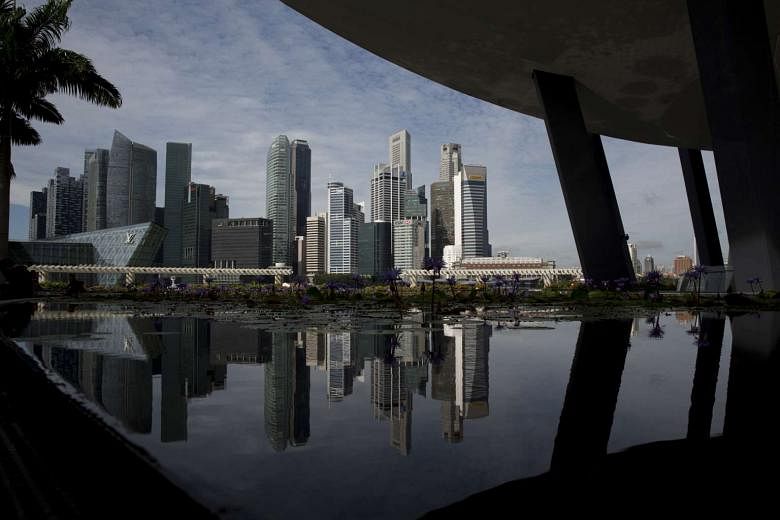Having forged strong partnerships over the past 50 years, Singapore and Japanese companies should explore new collaborations to expand abroad, including in South-east and South Asia, speakers at a business symposium here said yesterday.
Such cooperation will allow companies in both countries to grow by breaking into more markets and industries, such as infrastructure, healthcare and financial services.
Mr Chua Taik Him, deputy chief executive of trade agency IE Singapore, said Singapore brings to the table its insight into, and close links with, regional markets, while Japan is a global leader in technology and innovation.
The symposium was organised by Nikkei Business Publications, The Straits Times, the Japan External Trade Organisation (Jetro) and IE Singapore to mark 50 years of diplomatic ties between both countries.
Jetro president Yasushi Akahoshi said that, working together, Singapore and Japan can make inroads into industrial complexes in India - a "difficult" market to enter alone - as well as healthcare in Thailand and financial technology across Asia.
Singapore business space developer Ascendas-Singbridge invited Japanese companies to partner it for various projects in the region, including joint investments in urban developers, technology ventures and economic and social initiatives.
"Several of the fastest-growing cities will be in Asean" in the coming years, and the region will need US$60 billion (S$81.7 billion) of infrastructure investment annually until 2022, Ascendas-Singbridge deputy CEO Manohar Khiatani said in a speech at the symposium.
Speakers at a panel discussion on sustainable urbanisation in Asean said that apart from providing capital investment, Singapore and Japanese firms should help Asean countries develop by transferring technological know-how and building human capital in the local workforces.
They also need to convince governments in the region of the importance of implementing proper infrastructure as the basis for economic growth, said Changi Airport Group and Surbana-Jurong chairman Liew Mun Leong, a panellist.
The session was moderated by Dr Kilaparti Ramakrishna, director for East and North-east Asia at the United Nations Economic and Social Commission for Asia and the Pacific (Escap).
Singapore and Japan, both centres of innovation, already have growing business links, said Minister of State for Trade and Industry Sim Ann at the symposium. She noted that bilateral trade has increased by 80 times since diplomatic ties were established, while Japanese investments in Singapore have jumped 900 times since 1970.
Several Japanese companies have set up regional headquarters in Singapore, recognising the economic potential of the Asean bloc, said speakers at another panel discussion.
IE Singapore's Mr Chua, who was the moderator, said: "There is disruption occurring in the economic value chain, so I hope that companies will use the merits of Singapore and Singaporeans to complement their businesses, to have synergy in order to compete effectively."
The symposium, held at the United Nations University in Shibuya, Tokyo, was co-organised by Escap and sponsored by Ascendas-Singbridge, KPMG, Nanyang Technological University, Singapore Airlines, Tokyo Institute of Technology, Touche and Yamato Holdings.

